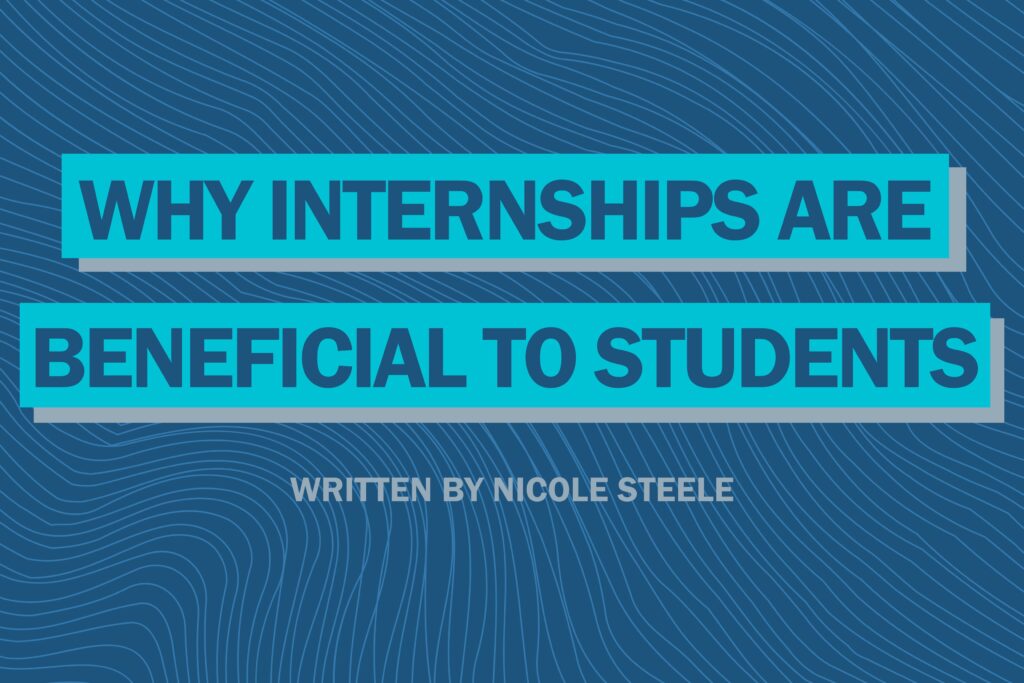National Intern Day: Why Internships are Beneficial to Students

Everyone always says internships are “good experience,” but what does that even mean?
Today — July 28, 2022 — is National Intern Day, so naturally, I wanted to share a blog post about internships. With this being what seems like Progression’s most published topic, I looked back on our previous articles to see what could possibly be left to say about the topic. It appears we were missing the most basic of information: why internships are beneficial to students.
So, let’s go back to the fundamentals. Why are internships a “good experience,” and why should students seek internship opportunities?
- Internships strengthen students’ skillsets.
Internships teach both hard and soft skills. This means that as students take up more internship opportunities, they become more marketable because they boost their resume with hard skills such as “Adobe Creative Suite Proficiency.” Still, even if students don’t feel like they’re learning any new hard skills, they get to practice and become more proficient with current skills. Internships also strengthen soft skills such as interpersonal communication, business professionality, team work, openness to criticism, time management, and more. The practice with all of these skills will make students stand out as future professionals.
- Internships build confidence.
I remember walking into the office on the first day of my Benchmark internship, and I was so nervous. I felt out of place and was worried that my opinions would not matter. However, by the end of the internship, I not only had more confidence because of the skills I had learned, but I also had more confidence that my perspective was important despite my age and lack of experience. This is a story I hear from many other student interns. Confidence such as this helps students stand out in future interviews and empowers new hires to take more initiative on their projects, which will help them thrive in their careers.
- Internships introduce students to new industries.
You may know what industry you want to work in, but most students aren’t 100% certain about what they want to do in the future, and most professionals do not stay in a single industry. Therefore, even if you think you know where you want to work, exploring other industries within the PR world helps students become more certain of their career desires and gives them a wider range of experience that may become useful as they apply to future jobs. After all, internships are much less permanent than most jobs, so it’s wise to do the career exploration before committing to a company.
- Internships have mentorship.
Unlike jobs, internships should have mentorship built into the position. This means that before students get thrusted into the work world as a full-time professional, they get eased into their careers a bit. Mentorship gives students a safe place to learn new skills, observe professionals, ask questions, and receive feedback on how to improve before their position becomes full time.
- Internships are good for networking.
If you’re interning, then you have yet to settle into a career. Therefore, everyone you meet could be a valuable connection. Those you work alongside may be able to answer questions you have during or after your internship, or could even act as a subject matter expert for future projects. Further, by showing your PR proficiency throughout your internship, you may gain the favor of those you work with, which could lead to future job recommendations or even job offers.
Those are the five reasons I want to intern as much as possible, but did I miss any? Why do you think internships are beneficial to students?

Nicole Steele, PRSSA 2022-2023 National Vice President of Brand Engagement, is a junior at Biola University majoring in public relations with a double minor in communication studies and biblical & theological studies. She found her passion for public relations by volunteering in a branch of the Boy Scouts of America known as Venturing, where she currently serves as the founder and editor in chief of their national publication. She has also practiced PR in a variety of other positions, including as the communications intern at Benchmark and the account executive at her school’s PRSSA Nationally-Affiliated Student-run Firm. If you’re interested in writing a future Progressions article or simply want to connect with Nicole, feel free to reach out via email or LinkedIn.
